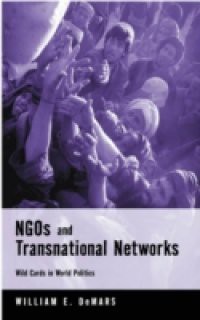Non-Governmental Organisations and their networks are proliferating in all regions of the world. They address every transnational issue from population to peace, human rights to species rights, genocide to AIDS. Supporters claim NGOs are effective in achieving their goals, while detractors counter that NGO power is paltry compared to governments and corporations. Challenging both views, DeMars irreverently reveals the political claims implicit in every transnational NGO. They are best conceptualised, he argues, not in terms of either principles or power, but through the partners they make in transnational society and politics. NGOs and transnational networks institutionalise conflict as much as cooperation, and reshape states and societies, often inadvertently. NGOs have overthrown dictators, provided life support for collapsed states, and reengineered the family. Their historical origins contrast sharply with current realities, and show signs of radical change in the future.

